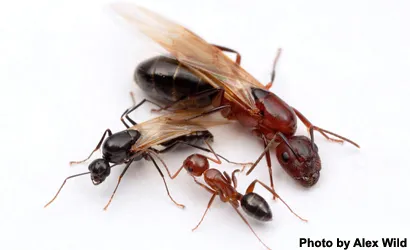It could just be a cultural thing.
Their society is divided into a "worker" caste and a "breeder" caste. While they are biologically identical, their culture expects them to live different lifestyles.
The workers are expected to do all the work in society, and when there is still time left to exercise their combat skills. That means they get plenty of exercise, making them fit and strong. The rules of the society say that they are prohibited from breeding. They might be physically able to bear children, but it is considered scandalous for them to do so. A pregnant worker would endanger their unborn child by still working. But a worker who does not work is lazy, and laziness is the worst possible character trait for a worker. So either way, members of the worker caste who become pregnant are immoral people who deserve to be ostracized at best and punished at worst.
The breeders caste, on the other hand, is expected to live a sedentary lifestyle where they spend most of their time laying around and producing babies while the workers feed them. They are not expected to move, because moving would bear risk of injury, and injury could endanger their unborn babies. This would mean they get hardly any exercise at all which means they would be physically weak.
Because only one of those castes bears children, cast membership can obviously not be hereditary. So it would need to be chosen after they are born. If you want a plot where a member of the species has to choose whether they want to be strong or want to bear children, then there might be the option in their society to switch caste later in life.

